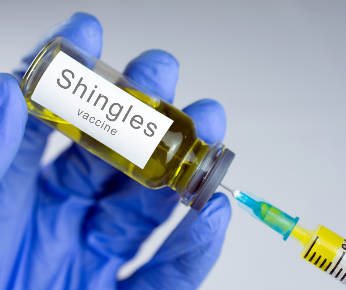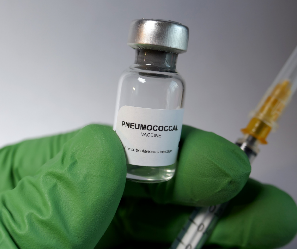-
80-3465 Platinum Drive,
Mississauga, ON, L5M 2S1
-
Mon – Fri: 9:00 AM to 6:00 PM
Sat – Sun: 10:00 AM to 6:00 PM
 Immunization is the process of giving a vaccine to a person to protect them against disease. Immunity (protection) by immunization is similar to the immunity a person would get from disease, but instead of getting the disease you get a vaccine. This is what makes vaccines such powerful medicine. Most vaccines are given by needle (injection) but some are given by mouth (orally) or sprayed into the nose (nasally). Immunizations are also called vaccinations, needles, shots or jabs.
Immunization is the process of giving a vaccine to a person to protect them against disease. Immunity (protection) by immunization is similar to the immunity a person would get from disease, but instead of getting the disease you get a vaccine. This is what makes vaccines such powerful medicine. Most vaccines are given by needle (injection) but some are given by mouth (orally) or sprayed into the nose (nasally). Immunizations are also called vaccinations, needles, shots or jabs.
Immunization (or vaccination) protects people from disease by introducing a vaccine into the body that triggers an immune response, just as though you had been exposed to a disease naturally. The vaccine contains the same antigens or parts of antigens that cause the disease, but the antigens in vaccines are either killed or greatly weakened. Vaccines work because they trick your body into thinking it is being attacked by the actual disease.
Immunity through immunization happens without the consequence of being ill and without the risk of potential life-threatening complications from the disease. Once a person is immunized, specific immune cells called memory cells prevent re-infection when they encounter that disease again in the future. However, not all vaccines provide lifelong immunity. Vaccines such as the tetanus vaccine require booster doses every ten years for adults to maintain immunity.
When enough people in a community are immunized against a disease, the chance of an outbreak is greatly reduced. This type of community protection is known as ‘herd’ or ‘community’ immunity. To reach herd immunity against a disease, a community must have between 74 to 95 per cent of the people immunized depending upon the disease.
Recommended Immunization Schedules for Ontario


As you get older, your doctor may recommend more vaccinations, also known as shots or immunizations, to help prevent certain illnesses. Talk with your doctor about which of the following vaccines you need. Make sure to protect yourself as much as possible by keeping your vaccinations up to date.
 Shingles vaccine for older adults
Shingles vaccine for older adultsShingles is caused by the same virus as chickenpox. If you had chickenpox, the virus is still in your body. The virus could become active again and cause shingles.
Shingles affects the nerves. Common symptoms include burning, shooting pain, tingling, and/or itching, as well as a rash with fluid-filled blisters. Even when the rash disappears, the pain can remain. This is called post-herpetic neuralgia, or PHN.
The shingles vaccine is safe and it may keep you from getting shingles and PHN. Healthy adults age 50 and older should get vaccinated with the shingles vaccine, which is given in two doses.
You should get a shingles shot even if you have already had chickenpox, the chickenpox vaccine, or shingles, or don’t remember having had chickenpox. However, you should not get a vaccine if you currently have shingles, are sick or have a fever, have a weakened immune system, or have had an allergic reaction to Shingrix.
You can get the shingles vaccine at Aafiyat Medical Centre. Please ask your Doctor how you can get it.
 Flu vaccines for older adults
Flu vaccines for older adultsFlu — short for influenza — is a virus that can cause fever, chills, sore throat, stuffy nose, headache, and muscle aches. Flu is very serious when it gets in your lungs. Older adults are at a higher risk for developing serious complications from the flu, such as pneumonia.
The flu is easy to pass from person to person. The virus also changes over time, which means you can get it again. To ensure flu vaccines remain effective, the vaccine is updated every year.
Everyone ages 6 months and older should get an annual flu vaccine, but the protection from a flu vaccine can lessen with time, especially in older adults. Still, you are less likely to become seriously ill or hospitalized because of the flu if you get the vaccine. A flu vaccine is especially important if you have a chronic health condition such as heart disease or diabetes.
There are flu vaccines designed specifically for people age 65 and older. You can get a flu vaccine at your doctor’s office or local pharmacy. The vaccine ingredients are the same wherever you receive it.
 Vaccines to help prevent pneumonia
Vaccines to help prevent pneumoniaPneumococcal disease is a serious infection that spreads from person to person by air. It often causes pneumonia in the lungs and it can affect other parts of the body.
Pneumococcal disease is common in young children, but older adults are at greater risk for complications and death. There are two types of vaccines to protect against pneumococcal disease.
• Pneumococcal Conjugate Vaccine (PCV13 or Prevnar®13)
• Pneumococcal Polysaccharide Vaccine (PPSV23 or Pneumovax®23)
Both PCV13 (Prevnar®13)) and PPSV23 (Pneumovax®23) are given as a Single Dose to adults over 65 years of age.
In Ontario:
• PPSV23 (Pneumovax®23) is publicly funded (free) for adults ages 65+
• PCV13 (Prevnar®13) may be purchased on an individual basis for seniors 65+
PCV13 is free for adults at high risk of pneumococcal disease. Please consult with your Doctor to know if you fall into a high-risk criteria.
Common side effects for all these vaccines are mild and may include pain, swelling, or redness where the vaccine was given.
Before getting any vaccine, talk with your doctor about your health history, including past illnesses and treatments, as well as any allergies.
It’s a good idea to keep your own vaccination record, listing the types and dates of your shots, along with any side effects or problems.
For more information, refer to the Canadian National Advisory Committee of Immunization (NACI) and Ontario’s Publicly Funded Immunization Schedule.
Social Chat is free, download and try it now here!